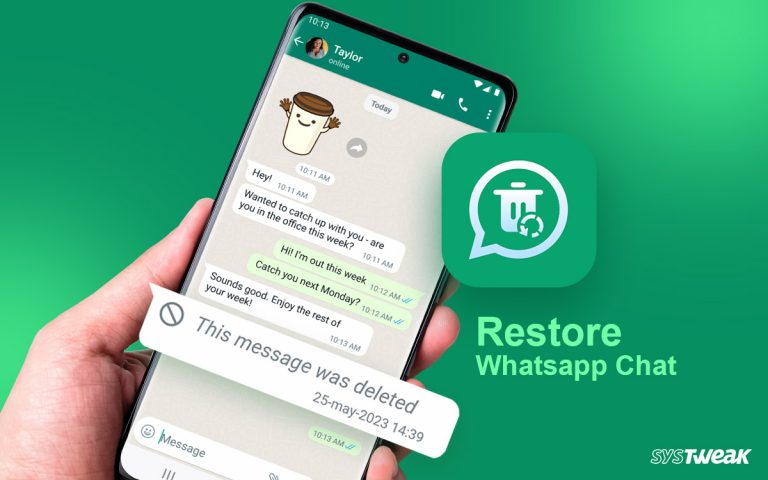Gone are the days when assignments and reports were filled with diagrams and graphs. Today’s generation instantly takes screenshots of the information they want and uses them.
While everyone uses these images in presentations, projects, files, and similar applications, a few users still do not know how to capture screens in Windows, so they rely on their smartphones to take snapshots.
Are you also doing the same, or do you know how to capture a PC screen? Well, if you, too, are looking for a guide that will help take screenshots on a Windows PC, you are in luck. In this post, we will share some productive ways to take screenshots.
Also Read- How to Take Scrolling Screenshot in Windows 11, 10
Use Cases of Capturing Screen: Why is it Important?
Before we begin and learn how to capture screens on Windows, you must understand where it can come in handy and why you should know how to do it. You see, sharing things online has never been easier. Every user is connected, and everyone can share their respective issues, points of view, or anything they find interesting at the click of a button. While connectivity is no longer an issue, the problem lies in means of expression. And that is where screen capturing comes in handy.
Take this for example: suppose you encounter an error on your screen. It keeps appearing repeatedly but does not stay fixed on your screen. Hence, when you ask your friend or colleague to look at it, it does not appear, and they cannot assist you. In such a situation, if you know how to capture the screen, you can instantly save the error screen and send it to them to let them understand what you were talking about.
Similarly, suppose you are preparing a tutorial or want to assist someone with a fix, but telling them how to do it verbally is not helpful enough. In that case, you can perform the step on your PC, capture the screen, and send those snaps as suggestions to navigate the issue. Isn’t it handy?
The use cases do not stop here. You can even use screen capturing to create a video tutorial and use it in your presentations. The possibilities are endless; hence, you must know how to capture screens in Windows.
Ways to Take Screenshots on Your PC – Free
You have multiple ways to capture the screen while using your PC. You can take a snapshot or record the current screen using the following methods.
Method 1 – Use the PrtScn button/ or Print Scrn button to Take a Screenshot of the Entire Screen:
When using any version of Windows, to capture the full screen, press the Print Screen button (located in the top right of the keyboard).
To paste the captured screen, open the document you want to paste and press Ctrl + v.
To edit the screenshot, paste it in Paint and use different options before pasting it in another document.
You can use the following combinations to use Print Screen for capturing screen on Windows –
- Print Screen (Capture screen)
- Win Key+Print Screen (Capture screen and save image automatically)
- Alt+Print Screen (Capture and copy the image to clipboard)
Method 2 – Using the Windows Game Bar

Using the Game Bar, you can take a screenshot on Windows.
1. To open the Game Bar, press Windows Key-+ G.
2. Click the camera in its Broadcast & capture section.
This will help grab the screen.
Method 3 – Using Snipping Tool:
Last but not least, if both methods do not work, you may use the Snipping tool. It is Microsoft’s official Windows tool that allows you to capture screens and much more.
Open the Microsoft App Store and search for the Snipping tool. The app can be downloaded and installed for free.
To capture the screen using the Snipping tool, all you need to do is use the following key combinations –
- Print Screen
- Win Key+Shift+S
Using any of these combinations, you can initiate the screen capture process. Then, use your cursor to select the region on the screen you want to capture for selective screenshots.
Method 4 – Taking Screenshots Using TweakShot
1. Download and install TweakShot – a screen-capturing tool for PC.
2. Launch TweakShot Screen Capture.

3. Go to the screen or web page you want to take a screenshot of.
4. Right-click the TweakShot icon in the system tray > select from the list of screen capturing options.

5. If you want to capture a specific area, mark it. Alternatively, if you’re going to capture a complete screen, use the Capture Full-Screen option.
6. Once done, the captured screen will automatically open in the TweakShot image editor.

7. You can edit the screenshot using the tools in the left pane or simply save it or upload it to Cloud Storage.

8. That’s it. Using TweakShot and these simple steps, you can capture screenshots of your choice on your PC.
In addition to capturing the screen, you can use TweakShot to Capture the Youtube Video Screen.
Conclusion
We believe you can capture screens in Windows 11, 10, and older versions using these steps. TweakShot is an advanced screen capture tool that offers additional functionality to record screens and edit screenshots. Loved by all, this screengrab tool has everything one would ever want in a screen recording software. Furthermore, you can use it to upload screen captures on cloud drivers and edit images to create presentations with TweakShot, which makes screen capturing and screen recording easy.
We hope you will try the tool. If you have any questions or need further help, contact the support team at support@tweaking.in.
Also, share your feedback in the section below. We love hearing from you.
If you have any better way, share it. We love receiving input from our users. Bookmark the page and follow us on social media to get notified about more such tricks.
Recommended-











